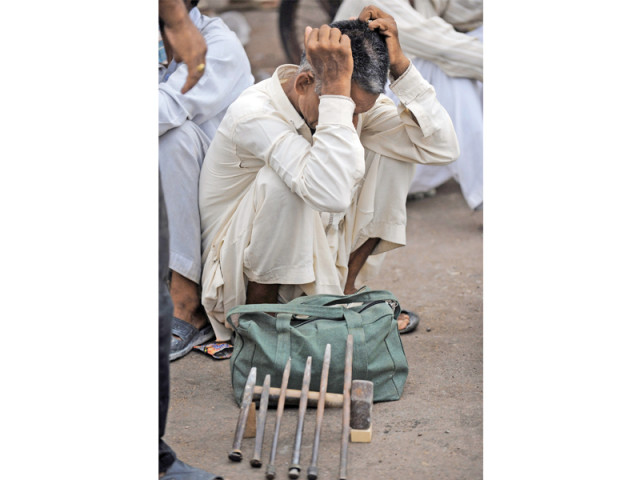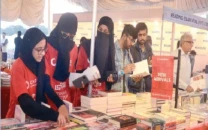United we stand: Statistics reveal number of jobless youth to double by 2020
Speakers at Acton House stress need for consolidated efforts for a better future .

There are approximately four million jobless youth, between the ages of 15 and 24, in Pakistan. Without adequate infrastructure to support this generation's education and vocational training, the number is likely to rise to 8.6 million by 2020.
This plight of Pakistani youth has been outlined in a report, titled 'Sustainable livelihoods: Investing in Pakistan's future'. The report was launched at Acton House at the British Deputy High Commission in Karachi, on Wednesday.

Aiming to take up the formidable challenge of turning the tide, the Citi Foundation has partnered with the British Asian Trust to produce this report, which highlights the projects being undertaken.
"A stable future for Pakistan is inevitably linked with our ability to give our youth a meaningful future - the deal that they deserve, which we have not really lived up to," said Dr Maleeha Lodhi, a former high commissioner of Pakistan to the United Kingdom. She was speaking during a panel discussion that followed the launch of the report. "Now, what we have before us is a report that is first rate and delineates a practical way forward."
She was joined on stage by John Anthony Tucknott, the British deputy high commissioner, Nadeem Lodhi, managing director at Citibank Pakistan and Asif Rangoonwala, a member of the British Asian Trust's board of trustees.
"In Pakistan, we have a population that is growing by around two per cent a year but we have an economy that miserably fails to keep up with this growth rate," said Dr Lodhi.
This "anaemic economic growth" is one of the major factors that Dr Lodhi believes has so far prevented the country from being able to capture the demographic. "The faltering connection between the population growth and jobs is self-evident as the industry since 2008 has only absorbed 20% of our eligible workforce," she said. "We really need to do something about these figures."
Another economic barrier in Dr Lodhi's view is the low participation of women in the workforce. "Women's participation rate is around 22 per cent and it has remained pretty static for some years now," she said. "In East Asian countries, around 70% of women participate as effective members of the workforce while this rate is close to 50% in the Middle East."
The countries that have managed to capture this demographic dividend have done that in a very conscious and systematically planned manner, she said. "Charity and philanthropy have a definitive role but there is no taking away from the role of the government."
She argued that dealing with this demographic challenge has to be a multi-stakeholder exercise. Philanthropy, the government and the private sector will have to come together and coordinate their responses to the challenges. "Otherwise we will spend too much time working in silos in an uncoordinated way even if we do very good things," she reasoned.
Citibank Pakistan's Nadeem Lodhi explained that while systems are in place to provide education and training, there are still major failings. "It is within these gaps that an individual contributor is able to invest in alternative and highly effective interventions."
Currently, 36 per cent of Pakistan's labour force is aged between 15 and 24 years," he revealed. "This number will rise to 50% by the year 2020," said Lodhi.
Asif Rangoonwala added that the British Asian Trust will offer philanthropists the opportunity to join like-minded individuals in creating a 'Livelihoods Fund'. "The aim of the fund will be to generate £1 million, which will be allocated to key interventions that will work toward unlocking the potential of many millions currently facing unemployment."
Published in The Express Tribune, November 28th, 2014.



















COMMENTS
Comments are moderated and generally will be posted if they are on-topic and not abusive.
For more information, please see our Comments FAQ